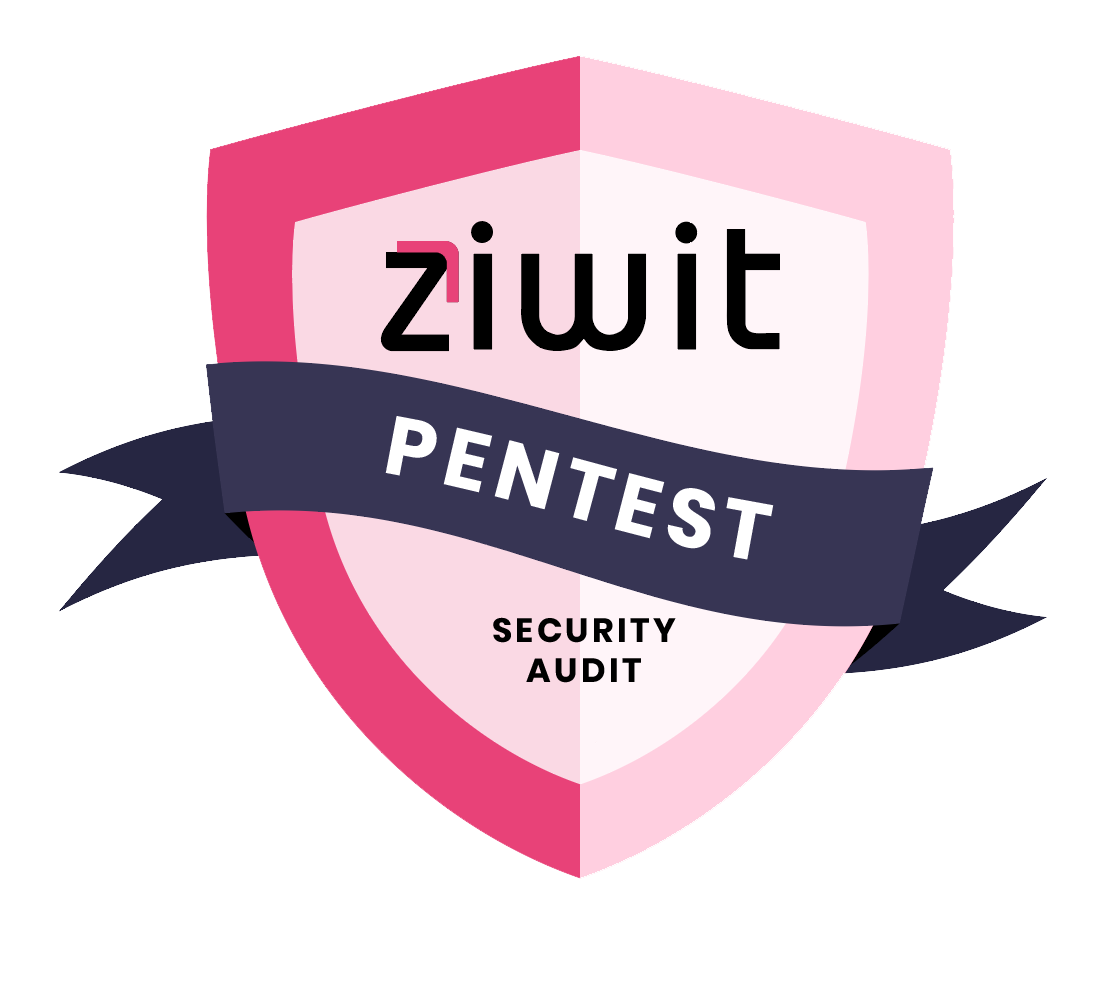What to do after a Pentest ?
Performing a pentest allows to validate concretely the vulnerabilities and security issues that can compromise or abuse your computer systems. It is a pragmatic and effective audit to ensure a state of security at a given time.
Fixes
Following a pentest, it is obviously necessary to correct the vulnerabilities identified, or to propose workaround solutions. The report helps guide remediation and the necessary actions/charges, but Ziwit cybersecurity experts are also at your disposal even after the restitution defense to help you or guide you!
Validation
Our experts check the correct application of the patches in order to issue the Ziwit Consultancy Services certification valid for 1 year. This certification is a guarantee of confidence that you can demonstrate to your partners, investors, regulatory authorities or any other stakeholder. It certifies the integrity, security and reliability of your IS.
Continuous improvement
Pentesting allows you to improve security at any given point in the life of your infrastructure. You must therefore use it as a reference, but also implement continuous improvement of your security using various specialized tools such as a vulnerability scanner. Our saying: Security is a process, never a state!
Pentest an application, what to do next ?
In order to ensure that there are no more new vulnerabilities or configuration problems that could cause IT security concerns, you can set up a vulnerability scanner between two pentests. We offer a proactive solution to detect vulnerabilities automatically.
The vulnerability scanner provides daily visibility into vulnerabilities and configuration issues in your applications. This will ensure that in case of development, modification, or the arrival of new vulnerabilities, your application will not be vulnerable !
 Ziwit Consultancy ServicesManual audits and Pentests on-site or remotely
Ziwit Consultancy ServicesManual audits and Pentests on-site or remotely
 PentestSimulate an IT attack with a penetration test
Security Operations CenterOutsource your IT security with our SOC offer by Ziwit
Phishing CampaignRaise awareness about Phishing and carry out a phishing campaign
PentestSimulate an IT attack with a penetration test
Security Operations CenterOutsource your IT security with our SOC offer by Ziwit
Phishing CampaignRaise awareness about Phishing and carry out a phishing campaign
 Ziwit AcademyTraining, education and best practices in cybersecurity
Incident Response TeamCrisis Unit in case of hacking
Standards & DirectivesZiwit supports you in complying with standards
Outsourced CISO & SupportOutsource your CISO or get support from an expert
RGPD & DPOCheck your GDPR confirmation and your DPO skills
Ziwit AcademyTraining, education and best practices in cybersecurity
Incident Response TeamCrisis Unit in case of hacking
Standards & DirectivesZiwit supports you in complying with standards
Outsourced CISO & SupportOutsource your CISO or get support from an expert
RGPD & DPOCheck your GDPR confirmation and your DPO skills
 PentestSimulate an IT attack with a penetration test
Pentest WebEvaluate the security of your site or web application
Black Box PentestEvaluate the security of your IT system in real conditions
Grey Box PentestIdentify vulnerabilities with limited system knowledge
White Box PentestPerform a penetration test with full access to system information
Internal PentestIdentify security vulnerabilities that can be exploited by an insider attacker
External PentestEvaluate your security by simulating an attack by an external attacker
Pentest as a ServiceProtect yourself continuously and without interruption thanks to our service Pentest as a Service
ISO 27001 PentestPerform an ISO 27001 Pentest
Red TeamImprove your security by identifying your weak points
PentestSimulate an IT attack with a penetration test
Pentest WebEvaluate the security of your site or web application
Black Box PentestEvaluate the security of your IT system in real conditions
Grey Box PentestIdentify vulnerabilities with limited system knowledge
White Box PentestPerform a penetration test with full access to system information
Internal PentestIdentify security vulnerabilities that can be exploited by an insider attacker
External PentestEvaluate your security by simulating an attack by an external attacker
Pentest as a ServiceProtect yourself continuously and without interruption thanks to our service Pentest as a Service
ISO 27001 PentestPerform an ISO 27001 Pentest
Red TeamImprove your security by identifying your weak points







 Specialized in offensive cybersecurity and pentests for more than 10 years.
Specialized in offensive cybersecurity and pentests for more than 10 years. 

























